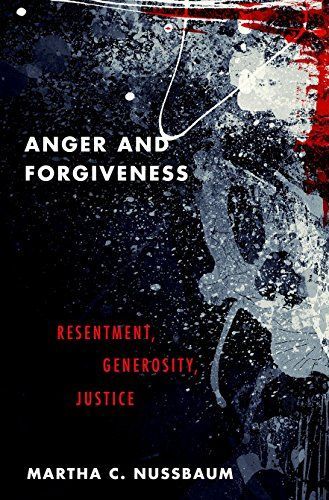
Anger and Forgiveness Resentment, Generosity, Justice
We live in a culture of apology and forgiveness. But while there are a few thinkers who criticize forgiveness in favor of retribution, philosopher and intellectual Martha C. Nussbaum is unique in criticizing the supposed virtue from the other side: forgiveness, Nussbaum asserts, is at itsheart inquisitorial and disciplinary. In this book based on her 2014 Locke Lectures, Nussbaum hones in first on anger and then on forgiveness, so vigorously championed today as a replacement emotion. Arguing that anger includes not only the idea of a serious wrong but also the idea that it would be a good thing if the wrongdoer sufferedsome bad consequence, Nussbaum asserts that anger, so understood, is always normatively problematic in one or the other of two possible ways. One way makes the mistake of thinking that the suffering of the wrongdoer restores the thing that was damaged. The other requires the victim to see the injuryas about relative status and only about that. While anger is sometimes useful as a signal that things have gone wrong, as a motive to address them, and as a deterrent to wrongdoing, its core ideas are profoundly flawed: either incoherent in the first case, or normatively ugly in the second. Neitheris anger as useful as it is often taken to be.Nussbaum goes on to strip the notion of forgiveness down to its Judeo-Christian roots, where the primary moral relationship is that between an omniscient score-keeping God and erring, penitent mortals. The relationship between a wronged human and another is, she says, based on this primary God-humanrelationship. Nussbaum agrees with Nietzsche in seeing in Judeo-Christian forgiveness a displaced vindictiveness and a concealed resentment that are ungenerous and unhelpful in human relations. The process of forgiveness can bolster a narcissistic resentment better eschewed in favor of a newparadigm based on generosity, justice, and truth.